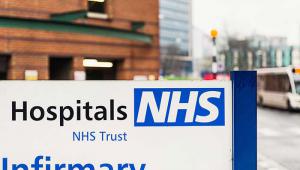A poll of more than 200 chief finance officers and finance directors for the Healthcare Financial Management Association found 84% said they would not have sufficient resources to implement the plan without extra support on top of the promised £8bn extra government funding.
In addition, 88% of those polled said they were not confident their organisation could deliver the 2-3% annual productivity gains needed in the FYFV to close the expected £22bn NHS funding gap.
In order to give the health service a chance of implementing the reform plan, almost all of those polled (94%) for the latest NHS Financial Temperature Check report said the £8bn was needed within the next 18 months. However, of the 123 finance chiefs from provider NHS trusts and 86 from clinical commissioning groups, 43% concluded the health service will not be able to continue to deliver the current levels of provision even with the additional cash.
Publishing the survey findings, HFMA policy director Paul Briddock said the report confirmed financial problems in the NHS were systemic and across the board.
“With just days left before the Spending Review, finance directors are telling us they’re not confident in the current plans and need more clarity. While they’re not convinced the promised £8bn in funding is sufficient to address the whole financial problem, it is clear it is needed now and many want to know if it will come with conditions attached to it.
“Providers also need realistic efficiency targets with adequate funding for the new demands and cost pressures facing them. Today’s report tells us it’s time to think about what Plan B is, if all else fails.”
Any alternative approach would need additional funding, Briddock indicated. The report found that all acute provider trusts are now predicting a year-end deficit, compared to 77% just four months ago.
“NHS trusts reported a combined £930m deficit for the first three months of 2015/16, larger than the deficit reported for the whole of the previous year,” he added.
“Combined with our new research, this tells us that the much reported year-end trust deficit of £2bn for 2015/16 is very optimistic indeed – with finance directors reporting that their financial plans are at medium to high risk of not being achieved and that there is slippage against savings plans, it’s likely the actual year-end deficit will be larger.”
Responding to the report, the NHS Confederation said it was the latest message to chancellor George Osborne about the risks to the health service if the £8bn was not available within two years.
Paul Healy, senior policy advisor on economics and regulation at the confederations, said: “Even with £8bn of investment, it is undeniable that the NHS faces a huge challenge finding the required efficiency savings. The only chance the service has of meeting these efficiency savings is if we have certainty and clarity of funding from the government in the upcoming Spending Review.”












